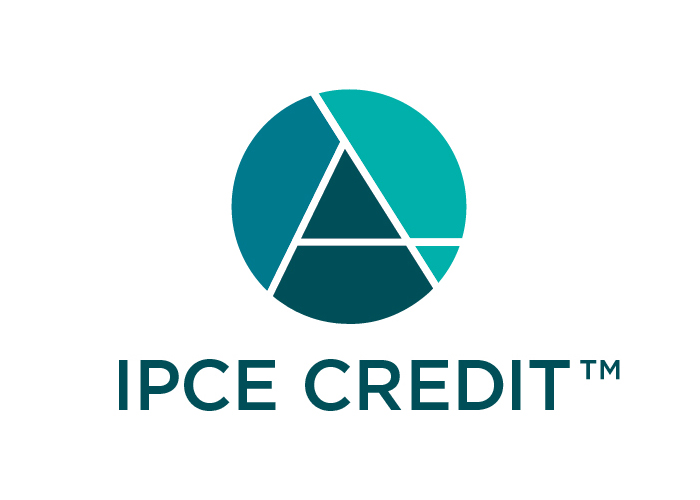FDA Grand Rounds: Bioequivalence of Complex Topical Generics: In Vitro & In Vivo
October 8, 2020
Virtual
The FDA Grand Rounds is webcast every other month to highlight cutting-edge research underway across the agency and its impact on protecting and advancing public health. Each session features an FDA scientist presenting on a key public health challenge and how FDA is applying science to its regulatory activities.
This presentation will summarize a series of FDA-coordinated, GDUFA-funded research studies that were part of a strategic multi-year, multi-million dollar research program to develop new, more efficient approaches by which to evaluate bioequivalence (BE) for topical generics. These studies characterized solution, gel, ointment, lotion and cream topical products containing a range of drugs including acyclovir, metronidazole, nystatin, triamcinolone acetonide, lidocaine, prilocaine, and diclofenac. Frequently, BE assessments with the same set of products were conducted in vitro and in vivo, under matched conditions. In vitro studies included physical and structural (Q3) product characterizations as well as in vitro release (IVRT) and in vitro permeation test (IVPT) studies. In vivo BE studies utilized pharmacokinetic endpoints (e.g., dermal microdialysis) or clinical endpoints. Collectively, the results of this research have established a remarkably clear, consistent, and substantial body of evidence supporting the utility of sensitive and efficient in vitro BE methods for topical products as an alternative to (or in support of) an in vivo BE assessment. Based upon this research program, revolutionary new paradigms have been developed to establish topical BE more efficiently via in vitro BE and cutaneous PK approaches, which can be more accurate, sensitive and reproducible than traditional BE approaches for topical products. These advances have enabled FDA to be responsive to numerous product development communications with prospective generic drug applicants, through controlled correspondences, Pre-ANDA meeting requests, product-specific guidances, and internal consultations with review divisions which have directly supported the review (and approval) of ANDAs submitted to the FDA involving novel BE approaches.
- Raney, SG and Luke, MC. A new paradigm for topical generic drug products: Impact on therapeutic access. J Am Acad Dermatol 2020;82:1570-1571. https://doi.org/10.1016/j.jaad.2020.01.062
- Kwa MC, Tegtmeyer K, Welty LJ, Raney, SG, Luke, MC, Xu S, Kong B. The relationship between the number of available therapeutic options and government payer (medicare part D) spending on topical drug products. Arch Dermatological Res. 2020;312(8):559-565. https://doi.org/10.1007/s00403-020-02042-9
- Raney, SG. Developing New Ways to Evaluate Bioequivalence for Topical Drugs. FDA Website Impact Story. https://www.fda.gov/drugs/regulatory-science-action/impact-story-developing-new-ways-evaluate-bioequivalence-topical-drugs
- • Shin SH, Thomas S, Raney SG, Ghosh P, Hammell DC, El-Kamary SS, Chen WH, Billington MM, Hassan HE, Stinchcomb AL. In vitro–in vivo correlations for nicotine transdermal delivery systems evaluated by both in vitro skin permeation (IVPT) and in vivo serum pharmacokinetics under the influence of transient heat application. Journal of Controlled Release. 2018;270:76–88. https://doi.org/10.1016/j.jconrel.2017.11.034
- Discuss the research conducted at the FDA
- Explain how FDA science impacts public health
- Describe the criteria that should be satisfied for a complex generic topical product to be considered bioequivalent and therapeutically equivalent to a brand name reference product.
- Explain why it was historically challenging to develop topical generics and discuss the relationship between the limited availability of topical generics and extraordinary increases in prices for topical products.
- Appraise the comprehensive body of evidence indicating that in vitro methods are sensitive and discriminating, and that they can correlate with and be predictive of in vivo bioequivalence.
This activity is intended for physicians, pharmacists, nurses, and other scientists within the agency and external scientific communities.
Lecture 1 October 8, 2020
| Time | Topic | Speaker |
|---|---|---|
| 12:00 - 1:00 PM EDT | Bioequivalence of Complex Topical Generics: In Vitro & In Vivo | Sam Raney, PhD |


Physicians, pharmacists, nurses, and those claiming non-physician CME: participants must attest to their attendance and complete the final activity evaluation via the CE Portal (ceportal.fda.gov). For multi-day activities, participants must attest to their attendance and complete the faculty evaluation each day. Final activity evaluations must be completed within two weeks after the activity - no exceptions.
Attention Pharmacists and Pharmacy Techs: Failure to provide your correct NABP AND Date of Birth information, in the required format, may result in the loss of credit for this activity. NABP profile number should be the 6-7 digit profile number assigned by the CPE Monitor and your birth date should be in the MMDD format (e.g. 0721) Do not provide your pharmacy license number. Please click the "My Account" tab and then navigate to "Edit Contact Information" to verify that your information is correct.
Attendees have 14 days from the last day of the activity to log in, complete the required evaluation(s) and attest to your attendance to claim credit.Physicians and nurses may then view/print statement of credit. Pharmacists should log into the CPE monitor 8 weeks after the last session of the activity to obtain their CE credit.
Faculty
- Raney, Sam, PhD, Associate Director for Science & Chief Scientific Advisor, United States Food and Drug Administration - nothing to disclose
Planning Committee
- Dinatale, Miriam, DO, Team Leader, Food and Drug Administration - nothing to disclose
- Pfundt, Tiffany, PharmD, Program Coordinator, FDA/CDER/OTBB - nothing to disclose
- Thomas, Devin, LCDR, MPH, CHES, Health Promotions Specialist, FDA/OC/OCS/OSPD - nothing to disclose
- Wheelock, Leslie, RN, MS, Director, OSPD, FDA, OC, OCS, OSPD - nothing to disclose
CE Consultation and Accreditation Team
- Bryant, Traci, M.A.T., CE Consultant, FDA/CDER/OEP/DLOD - nothing to disclose
- Zawalick, Karen, CE Team Leader, FDA/CDER/OEP/DLOD - nothing to disclose
Registration is complimentary; therefore refunds are not applicable.
 An official website of the United States government
An official website of the United States government 
 U.S. Food and Drug Administration
U.S. Food and Drug Administration